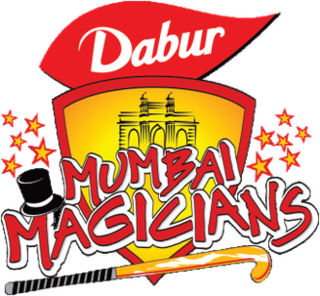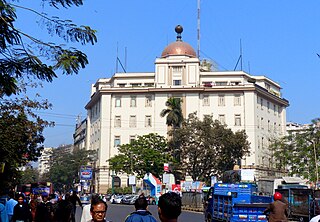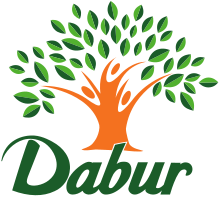
Hindustan Unilever Limited (HUL) is a British-owned Indian final good company headquartered in Mumbai. It is a subsidiary of the British company Unilever. Its products include foods, beverages, cleaning agents, personal care products, water purifiers and other fast-moving consumer goods (FMCGs).
Fresenius SE & Co. KGaA is a European multinational health care company based in Bad Homburg vor der Höhe, Germany. It provides products and services for dialysis in hospitals, as well as inpatient and outpatient medical care. The company is involved in hospital management and in engineering and services for medical centers and other health care facilities.

Eveready Industries India Ltd. (EIIL) is an Indian company that manufactures and markets batteries and lighting products. The Eveready brand has been present in India since 1905. It also manufactures photogravure plates, castings, carbon electrodes and related products.
Future Group is an Indian conglomerate, founded by Kishore Biyani and based in Mumbai. The company is known in Indian retail and fashion sectors, operating supermarket chains Big Bazaar and Food Bazaar, lifestyle stores Brand Factory and Central, integrated foods and FMCG manufacturing sectors. Future Retail Limited and Future Lifestyle Fashions Limited are two operating companies whose assets are among the top retail companies listed in BSE, with market capitalization among the highest on the National Stock Exchange of India.

Meswak is a fluoride-free toothpaste brand that was launched in India by Balsara Hygiene in 1998. The toothpaste is marketed as a herbal toothpaste as it is made from extracts of the Salvadora persica plant. The teeth cleaning twig of the plant is reputed to have been used over 7,000 years ago.
Babool is a toothpaste brand which was launched in India by Balsara Hygiene in 1987. Babool is made from the bark of the Babool tree, which has traditionally been used to clean teeth in India. The brand was positioned as an economic toothpaste with the tagline "Babool Babool paisa vasool". Babool was relaunched with the tagline "Begin a great day, the Babool way" in 2002, when Babool was Balsara's biggest brand. In 2005, Babool was sold by Balsara to Dabur along with other Balsara toothpaste brands Promise and Meswak in a ₹1.43 billion (US$18 million) deal. As of 2007, the Babool brand was valued at ₹1 billion (US$13 million).

Tata Consumer Products is an Indian fast-moving consumer goods company and a part of the Tata Group. Its registered office is located in Kolkata while its corporate headquarters is in Mumbai. It is the world's second-largest manufacturer and distributor of tea and a major producer of coffee.

Dabur Research Foundation (DRF) is an Indian contract research organization offering pre-clinical services in drug discovery and development. It was established in 1979 to spearhead the research and development activities of Dabur, India's largest Ayurvedic medicine manufacturer.

Mumbai Magicians was an Indian professional field hockey team based in Mumbai, Maharashtra that played in the Hockey India League from 2012 to 2014. It was owned by Dabur India Ltd. Australian coach Ric Charlesworth served as the head coach for the team.

Mankind Pharma is an Indian pharmaceutical and healthcare products company, headquartered in Delhi. The company has products in therapeutic areas ranging from antibiotics, to gastrointestinal, cardiovascular, dermal, and erectile dysfunction medications.

The Piramal Group is an Indian multinational conglomerate that has presence across various sectors such as healthcare, life sciences, drug discovery, financial services, alternative investment and real estate.
Patanjali Ayurved is an Indian multinational conglomerate holding company, based in Haridwar. It was founded by Ramdev and Balkrishna in 2006. Its office is in Delhi, with manufacturing units and headquarters in the industrial area of Haridwar. The company manufactures cosmetics, ayurvedic medicine, personal care and food products. The CEO of the company, with a 94-percent share hold, is Balkrishna. Ramdev represents the company and makes strategic decisions.
Mohit Burman is an Indian businessman. He is the chairman of Dabur, an Ayurvedic and FMCG company. A fifth-generation scion of the Burman family, he also led the family's acquisition of a majority stake in dry cell battery maker Eveready Industries India and the family's entry into the life insurance sector through Aviva India. A sports enthusiast, he is also promoter and co-owner of the Indian Premier League cricket team Punjab Kings.

ITC Limited is an Indian conglomerate company, headquartered in Kolkata. It has a presence across six business segments, namely FMCG, hotels, agribusiness, information technology, paper products, and packaging. It generates a plurality of its revenue from tobacco products.
Anand Ashok Chand Burman is an Indian billionaire businessman, and chairman of Dabur a leading consumer goods company. With a net worth of $5.8 billion, he is among the Top 20 richest Indians and on the Forbes list.
Alembic Pharmaceuticals Ltd. is an Indian multinational pharmaceutical company headquartered in Vadodara. It is involved in the manufacture of pharmaceutical products, pharmaceutical substances and intermediates. It is also termed to be a market leader in macrolides segment of anti-infective drugs in India.

Wipro Enterprises Private Limited is a privately held Indian company whose main activities are in the fast-moving consumer goods, lighting, hydraulic cylinders, industrial automation, 3D printing and aerospace component manufacturing and industrial water treatment business. It is almost entirely owned by Azim Premji, his associates, and his charitable associations. Revenues of the company stood at US$1.44 billion in 2020–21. The company was founded in 2013 as a spin-off of Wipro Limited's non-IT businesses.

RP-Sanjiv Goenka Group is an Indian multinational conglomerate headquartered in Kolkata. The founding was the result of a divesture by RPG Enterprises in 2011. The Group's businesses include power and energy, carbon black manufacturing, retail, IT-enabled services, FMCG, media and entertainment, infrastructure and education.
Sanjay Ghodawat Group is an Indian conglomerate, headquartered in Kolhapur, India. Its businesses include energy, aviation, consumer products, education, real estate, retail, and textiles. It was founded in 1993.











